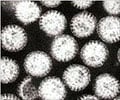A new study has reported anti-microbial antibody formation in celiac disease.
Relatively high positivity rates were observed for the conventional antibodies, for example, ASCA, anti-OmpW, and anti-I2, and they were known to decrease after a successful gluten free-diet.The importance of newly discovered inflammatory bowel disease-associated antibodies (including anti-glycan antibodies and anti-OMP) in celiac disease is not sure. The presence of anti-microbial antibodies in relation to clinical presentation of the disease and NOD2/CARD15 mutations was also not investigated.
A research article to be published on August 21, 2009 in the World Journal of Gastroenterology addresses this question. Hungarian researchers from the University of Debrecen in Debrecen and the Semmelweis University in Budapest have shown in a well-characterized CD cohort that the anti-glycan antibody positivity is a common feature of celiac disease at the time of diagnosis and is lost after long-term gluten-free diet.
The positivity rate and titers at diagnosis are as high as observed in Crohn's disease. The presence of anti-glycan antibodies is associated with the presenting symptoms, especially with severe malabsorption but not with mutations in NOD2/CARD15. No higher prevalence of anti-microbial antibodies is observed in the unaffected, first-degree relatives of this patient cohort. Although the new data presented in the article may add new pieces to the puzzle of the anti-microbial antibody formation, the authors believe that it also assist to re-evaluate recently proposed genetically drived mechanism. Serological response to various microbial antigens might be considered a universal marker of the enhanced translocation of the gut microflora through the impaired small bowel mucosa both in celiac and Crohn's disease patients.
Source-Eurekalert
RAS











